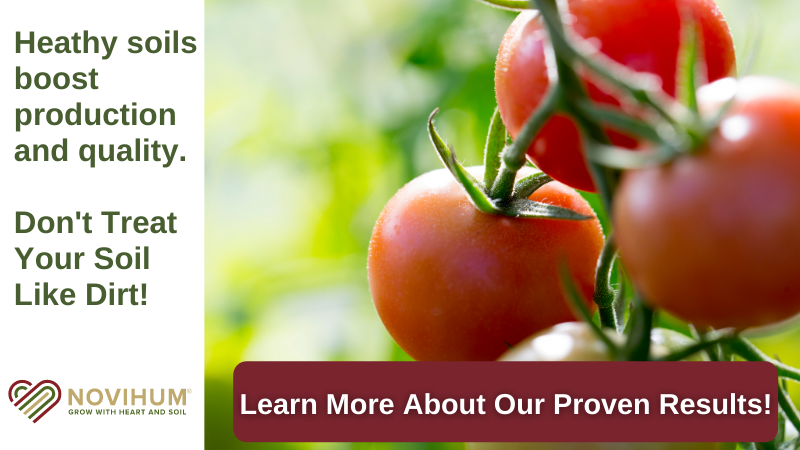What’s the Difference Between Organic and Sustainable Production?
What is the difference between organic and sustainable agriculture? How are “sustainable” products different from those marketed as “green,” “natural,” or “earth-friendly”? And what does the development of a sustainable agriculture national standard mean for organic growers?
It’s not all the same. In fact, organic production is part of sustainable agriculture, but not the other way around. And while the terms “green,” “natural,” and “earth-friendly” and others along that same path mean well, there’s no concrete system to verify that they are anything more than marketing gimmicks, depending on the company.
“You don’t have to be organic to be sustainable,” says Mike Hogan, coordinator for the Ohio Sustainable Agriculture Research and Education (SARE) program through The Ohio State University Extension. “There are organic systems that aren’t sustainable; just because a grower is organic doesn’t mean that he is sustainable, but committing to organic production is one way to become more sustainable.”
Sustainable agriculture, according to Scott Exo, executive director of Food Alliance, addresses the nation’s ability to produce safe, healthy, affordable food in large enough quantities that will maintain the population “without degrading the productivity of the land,” he says.
“Organic ag is about building healthy soil, enhancing biodiversity, minimizing off-farm inputs, and, under the National Organic Program (NOP), avoiding a long list of synthetic materials. As a production system, organic is a very important part of a larger strategy to make ag more sustainable. Sustainable agriculture emphasizes a similar biological approach, but expands the focus to include agriculture’s broader impacts, on things like wildlife habitat, workers, and energy, water, and soil conservation.”
Recognize Organic Production
According to Linda Brown, executive vice president for Scientific Certification Systems, the organization that wrote the original sustainable agriculture draft standard, there is currently a movement in the organic industry to consider what its next steps will be to address sustainability. She says there are sustainability certification programs that do not recognize organic practices, causing some friction in the ag community. As long as organic agriculture is recognized and included within a sustainable agriculture standard’s framework, organic growers will be willing to conform, she says.
With the growth in demand for organic products spiraling upward, and supply growing to fill that demand, prices for organic food have become more affordable, and the once profitable value-added niche organic growers enjoyed is no longer as lucrative. While the marketing opportunities are huge for organic and sustainable growers, a value-added proposition is not necessarily a given, says Brown.
A Comprehensive Approach
With an organic certification already long in place, is there a need for a sustainability standard and certification? While organic practices are a great improvement over industrialized agriculture, they are not a total solution for all the challenges in agriculture and within the food industry, Exo says.
“Organic production doesn’t guarantee, for example, that workers are treated well, that animals are raised humanely, or that wildlife is protected and enhanced,” he says. “Many organic farmers are also dissatisfied with the national organic standard and use the term “beyond organic” to describe their individual efforts to address these and other issues.”
As organic production broadens and becomes more common, the limits of the national organic standard are becoming more clear, which is causing a great deal of dissent in the agriculture community, Exo adds.
Jeff Dlott, president and CEO of SureHarvest, agrees, adding that the organic standard was not designed to answer certain questions that are becoming more pertinent and important to consumers, such as a product’s carbon footprint or the assurance of cleaner soil or water.
“If we’re marketing this stuff as organic, what are we telling consumers they’re buying? What do you buy when you buy organic? It’s a perception,” he says. “You do know that certain products were not used, but are you buying a product grown without pesticides? No, because there are a lot of organic pesticides. Are you buying a product with a reduced energy or carbon footprint? Not necessarily because there are no standards for how much fuel you burn or how much soil erosion might result. The system wasn’t designed for that.”
What is needed, Exo concludes, is a more comprehensive approach, including standards that include a broader range of social and environmental concerns and evolving management strategies, which will help ensure the food system is sustained.










